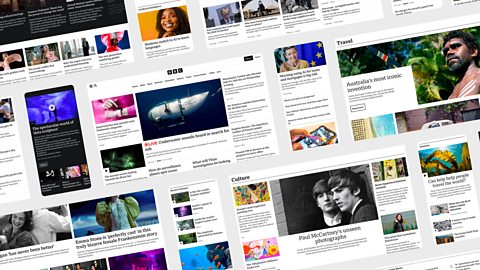What Does News Websites Do?
What Does News Websites Do?
Blog Article
The Main Principles Of News Websites
Table of ContentsNews Websites for DummiesThe 3-Minute Rule for News WebsitesSome Known Factual Statements About News Websites See This Report about News WebsitesThe Greatest Guide To News Websites
It was down in the UK and Brazil however up a few other nations, such as Greece, Bulgaria, and Poland (News Websites). This year, for the very first time, we inquired about the different manner ins which people prevent the information and discovered that around half of avoiders (53%) were trying to do so in a broad-brush or regular way for example, by switching off the radio when the news began, or by scrolling past the news in social mediaYou claimed that you attempt to proactively prevent information.

I'm most likely picking to read even more light-hearted tales than I used to presently. M, 51, UK Switching my back on news is the only way I feel I can deal often. I have to purposely make the initiative to avert for the purpose of my very own mental wellness.
All About News Websites
Careful evasion of Ukraine information was highest in much of the nations closest to the problem, strengthening findings from our extra survey in 2015, not long after the war had actually begun. Our information might not recommend an absence of rate of interest in Ukraine from close-by nations but instead a need to handle time or safeguard psychological health and wellness from the extremely genuine scaries of war.
Comparing Finland with a politically polarised nation such as the United States (see following graph) that is less influenced by the war, we discover a really various pattern of subject evasion. In the USA, we find that customers are more probable to prevent subjects such as nationwide politics and social justice, where arguments over problems such as gender, sexuality, and race have actually ended up being extremely politicised.
American politics are rather hazardous these days. I discover in some cases that I need to separate from stories that just make me upset. F, 61, USA For some people, bitter and divisive political debates are a reason to switch off information completely, but also for some political upholders, avoidance is frequently concerning shutting out point of views you do not intend to hear.

Some Ideas on News Websites You Should Know
Some are wanting to make information more easily accessible for hard-to-reach teams, widening the information schedule, commissioning more inspiring or favorable news, or embracing useful or services journalism that offer people a feeling of hope or personal firm. In our study this year, we asked participants about their rate of interest in these various approaches.
This explains why stories like Ukraine or nationwide politics do well with information regulars but can at the same time transform much less interested users away (News Websites). Selective avoiders are much less thinking about all sorts of information than non-avoiders but in relative terms they do appear to be extra interested in favorable or solutions-based information

The smart Trick of News Websites That Nobody is Talking About
2023). This might be true in the minute, but over time it seems to be leaving many people vacant and less completely satisfied, which might be threatening our link with and count on visit here the news. Throughout markets, general trust in news (40%) and rely on the sources individuals use themselves (46%) are down by a further 2 portion factors this year.
With the rear-view mirror, the COVID-19 trust bump is plainly visible in the following graph, though the direction of travel after that has been blended. In some instances (e.g. Finland), the trust fund increase has actually been kept, while in others the upturn looks more like a spot in a tale of ongoing long-term decline.
A few of the highest reported degrees of media criticism are discovered in countries with highest degree of wonder about, such as Greece, the Philippines, the United States, France, and the United Kingdom. The most affordable levels of media objection are typically in those with higher levels of trust, such as Finland, Norway, Denmark, and Japan.
Fascination About News Websites
This year we asked respondents about their choices for text, sound and video when taking in information online. Generally, we find that the majority still choose to check out the description news (57%), as opposed to watch (30%) or pay attention to it (13%), but younger individuals (under-35s) are much more likely to pay attention (17%) than older groups.
Behind the standards we find considerable and shocking nation distinctions. In markets with a solid reading custom, such as Finland and the UK, around eight in 10 still choose to read online news, but in India and Thailand, around 4 in ten (40%) say they choose to enjoy information online, and in the Philippines that proportion is over fifty percent (52%).
Report this page